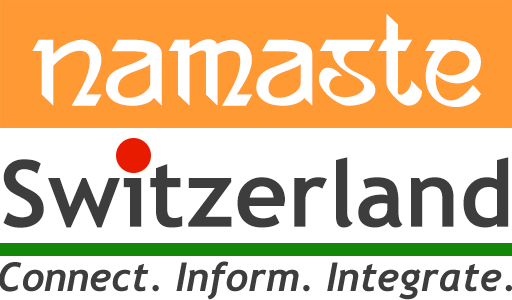The Usthi Foundation has been working with women and children in remote and backward areas in India for over four decades. Last month, the Swiss Embassy in India supported them to battle hunger in the times of COVID-19. We bring you the story of the foundation and its founder, Kurt Buerki.
Since 1976, the Usthi Foundation and its partners in Kolkata, Odisha and Telangana have supported more than 50,000 children and young adults. In 2020 alone, Usthi has taken 1,800 children under its care, enabling them to attend schools and supporting them with after-school tuitions as the parents of these children cannot tutor or help them with learning or revising their academic work at home. Every year, about 1,200 young people, in particular single mothers and school dropouts, complete the Usthi professional skill-training course. The skilling is broadly based on the concept of the Swiss dual education system.
But it’s not just skilling that Usthi focuses on. The good health of infants matters to the foundation as well, since it is an important prerequisite for the development of the growing children and their success at school. Hence, in 1983, the Foundation set up a hospital in a tribal region to provide healthcare to 133 villages. In addition to running the facility, the foundation continues to engage in training social and health workers in nutrition and health in 50 villages; and runs early child development programs known as the ‘Health and Education Project’ (HEP) in about 8 villages surrounding the hospital.
A further emphasis of Usthi’s work is the support for young women to strengthen their role in society. For example, Usthi provides safe homes, psychological care and education for abused women and children and helps them to integrate back into society. These people are victims of human trafficking or temple prostitution with a terror-filled life.
An insight into the Usthi Foundation
With the goal to provide access to education and health care for children and young people in need, former Swissair Captain Kurt Bürki and his wife, Edeltrud Bürki, established the Usthi Foundation in Switzerland in 1976.

An interview with the founder and almost-octogenarian, Kurt Buerki
What motivated you to start Usthi?
 Kurt Buerki: To answer the question, we have to go back and understand the context of the 1960s.
Kurt Buerki: To answer the question, we have to go back and understand the context of the 1960s.
Some of the political lows included: the cold war between East and West, Cuba crisis, the assassination of John F. Kennedy, the Soviet Union’s invasion of Czechoslovakia.
Some social highlights of the time included: the establishment of the Club of Rome, the youth’s rebellion at Sorbonne, which had an enormous effect on European countries, discussion about increasing world population and limited energy resources.
And a few of the technological advancements that came forth included: the first human in space, cosmonaut Yuri Alekseyevich Gagarin, Neil Armstrong’s landing on the moon, all these without computers and mobile phones.
Of course, these few highs/lows cannot be complete but belong to the many milestones of the 1960s. It was at this time when my (late) wife, Edeltrud and I were establishing our lives with a career without limitations that was visible after the recovery of the Second World War. Inspired by the discussions of the Club of Rome and properly established as an airline pilot with no financial challenges, we decided to give something back to the society – as a sign of gratitude for the good life that we had in Switzerland.
This was the background in which the roots establishing Usthi were set up. There were a number of highs and lows amidst the long process of discussions and research that went into the idea. It took almost 10 years… But then in 1976, we visited friends in Kolkata and immediately started working on the idea of a street kitchen for neglected children from the streets of the city.
Today, almost 45 years later Usthi includes many projects in India and Nepal, focusing on education and health. Thousands of children and youth are under the care of the Usthi family. Our children and youth come from the neglected part of the society. It would take too long to explain all the projects, its contents and targets here, but you find everything under www.usthi.ch.
Why did you choose to work in Kolkata?
There was no special reason. We just knew a few good friends in the city, so we started there. We visited Kolkata, Siliguri, Keonjhar in Odisha, Dhaka and north Bangladesh. The impressions of Bengal and Odisha region kept us tied for many years. Later, through friends and connections we also spread Usthi into Karnataka, Andhra Pradesh and Kathmandu in Nepal.

According to you, what has been your biggest accomplishment over the last 40+ years?
It is not easy to choose one as the biggest. 45 years of India and Nepal includes uncountable little and big stories of love and suffering. But, looking back, I feel proud to have survived India for 45 years and still be totally motivated to go ahead. India, with its contradictions, with the power of unlimited human capital and the glory of its people has become my second home.
What keeps you going in this field of relentless work?
We met beautiful people, who see life with different eyes; those who have other priorities and handle challenges differently. We may have brought in some ideas and funds, but we have got back much more in terms of deep affection, love and calmness to face misery and emergencies that we have to accept.
Going forward- what is your vision?
I am almost 80 – and a happy man. Usthi, a child of my late wife and myself is in good hands. The young qualified and competent Usthi Team is ready to face the challenges of the future. The question of vision now belongs to the Usthi team.
My vision has not changed over all the years and continues to remain valid. As human beings, we are far away from being complete. So, my vision still is a world of more justice and less discrimination among all humans.
What are some of the problems you face and how do you overcome them?
If you work with people and so many different ethnicities, the list of problems gets very long. We compare good and bad and we immediately have a problem because we rate or judge. The good is not a problem, but the bad is. Everybody has another rating, so we often end up with a total mess.
I might not be competent to give a recipe on how to solve problems. To overcome problems in life, I try not to forget affection and love. Time is not an issue and very rarely does money alone solve problems. I normally tend to sit down and listen to my instinct. Is there a problem at all? Through the eyes of friends and experts, perhaps the problem looks very different. If the result brings out a solution, I usually take a step forward. But, I don’t forget to reflect!
There are things over which we have no influence. Then, it’s best to try to accept the situation and bind the problem within my strategy to go ahead.

With that, Kurt Buerki, the man who has brought joy and self-reliance to many, concludes his interview.
And this brings us to the current situation of the COVID-lockdown and current regional restrictions, which has particularly affected people living in precarious circumstances. Many families have lost their income opportunities. While a warm lunch is guaranteed for the children at Usthi’s school, this is no longer possible due to school closures and many of the families can hardly get food to their homes.
In line with Buerki’s thoughts “to try to accept the situation and bind the problem within my strategy to go ahead”, Usthi has stepped forward to provide COVID-19 emergency relief to affected families – together with local partners.
A first relief operation was carried out at the beginning of May and targeted single mothers and families of Usthi’s schoolchildren in Hyderabad. A second relief operation was then carried out at the Usthi schools in Hudarait, 20 kilometres east of Kolkata, and Pentakatha near Puri. With the financial support from the Swiss Embassy in New Delhi, more than 730 families were provided with food packages containing rice, pulses, oil and potatoes.
Today, Usthi continues to serve and make a positive impact on the lives of many – despite a crisis situation that has literally brought the world to its knees. The Usthi Foundation and its team members continue to believe in taking small and significant steps to make positive change happen.

Disclaimer: Written in good faith, we do not undertake any financial/reputational impact or other obligations/liabilities that may arise from the content.













Trackbacks/Pingbacks